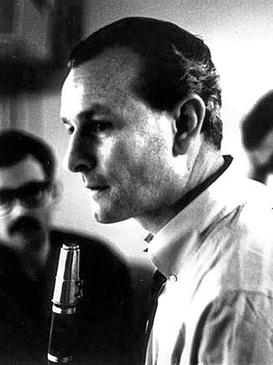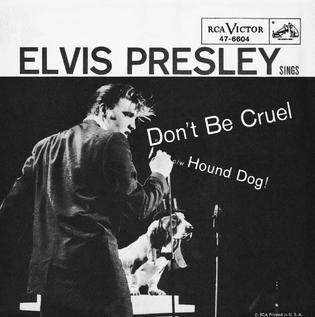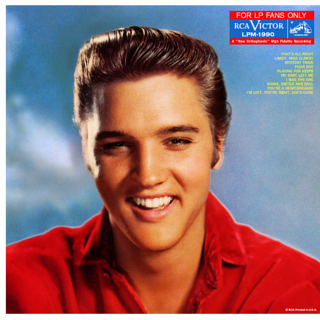
Lawrence Welk was an American accordionist, bandleader, and television impresario, who hosted The Lawrence Welk Show from 1951 to 1982. His style came to be known as "champagne music" to his radio, television, and live-performance audiences.

Barney Kessel was an American jazz guitarist. Known in particular for his knowledge of chords and inversions and chord-based melodies, he was a member of many prominent jazz groups as well as a "first call" guitarist for studio, film, and television recording sessions. Kessel was a member of the group of session musicians informally known as the Wrecking Crew.

James Peter Giuffre was an American jazz clarinetist, saxophonist, composer, and arranger. He is known for developing forms of jazz which allowed for free interplay between the musicians, anticipating forms of free improvisation.

Kay Starr was an American singer who enjoyed considerable success in the late 1940s and 1950s. She was of Iroquois and Irish heritage. Starr performed multiple genres, such as pop, jazz, and country, but her roots were in jazz.
Pete Jolly was a two-time Grammy-nominated American West Coast jazz pianist and accordionist. He is known for his performance of television themes and movie soundtracks.

The Fontane Sisters were a trio from New Milford, New Jersey.

Elvis Presley is the debut studio album by American rock and roll singer Elvis Presley. It was released by RCA Victor, on March 23, 1956,. The recording sessions took place on January 10 and January 11 at the RCA Victor Studios in Nashville, Tennessee, and on January 30 and January 31 at the RCA Victor studios in New York. Additional material originated from sessions at Sun Studio in Memphis, Tennessee, on July 5, August 19 and September 10, 1954, and on July 11, 1955.
"Three Coins in the Fountain" is a popular song which received the Academy Award for Best Original Song in 1955. The song was first recorded by Frank Sinatra.
"Around the World" is the theme tune from the 1956 movie Around the World in 80 Days. In the film, only an instrumental version of the song appeared, although the vocal version has become the better known one. The song was written by Harold Adamson and Victor Young; Young died in 1956, several weeks after the film's release, and he received the Academy Award for Best Music, Scoring of a Dramatic or Comedy Picture posthumously. Young's orchestral version was a #13 hit on the Billboard charts in 1957. The recording by Bing Crosby was the B-side of the Victor Young version in 1957, on Festival SP45-1274 in Australia, and was a joint charting success.

"Don't Be Cruel" is a song that was recorded by Elvis Presley and written by Otis Blackwell in 1956. It was inducted into the Grammy Hall of Fame in 2002. In 2004, it was listed #197 in Rolling Stone's list of 500 Greatest Songs of All Time.

Julius Frank Anthony Kuczynski, known professionally as Pee Wee King, was an American country music songwriter and recording artist best known for co-writing "Tennessee Waltz".

Elvis is the second studio album by American rock and roll singer Elvis Presley, released by RCA Victor on October 19, 1956 in mono. Recording sessions took place on September 1, September 2, and September 3 at Radio Recorders in Hollywood, with one track left over from the sessions for Presley's debut album at the RCA Victor recording studios on January 30 in New York. It spent four weeks at #1 on the Billboard Top Pop Albums chart that year, making Presley the first recording artist to have both albums go straight to number one in the same year. It would go on to spend 5 weeks at #1 in total. It was certified Gold on February 17, 1960, and Platinum on August 10, 2011, by the Recording Industry Association of America.

Jeri Southern was an American jazz singer and pianist.

Elvis' Golden Records is a compilation album by American rock and roll singer Elvis Presley, issued by RCA Victor in March 1958. It compiled his hit singles released in 1956 and 1957, and is widely believed to be the first greatest hits album in rock and roll history. It is the first of five RCA Victor Elvis' Golden/Gold Records compilations, the first four of which were issued during Presley's lifetime. The album peaked at number three on the Billboard Top Pop Albums chart and was certified 6× platinum on August 17, 1999, by the Recording Industry Association of America.

For LP Fans Only is a compilation album by American singer and musician Elvis Presley, released on February 6, 1959 by RCA Victor. It compiled previously released material from an August 1956 recording session at 20th Century Fox Stage One, a September 1956 session at Radio Recorders in Hollywood, sessions on January 10 and 11 at the RCA Victor Studios in Nashville, two more at the RCA Victor Studios in New York, and multiple sessions at Sun Studio. The album reached number 19 on the Billboard Top Pop Albums chart.
"Hoop-Dee-Doo" is a popular song published in 1950 with music by Milton De Lugg and lyrics by Frank Loesser.

Herbert Arnold Geller was an American jazz saxophonist, composer and arranger. He was born in Los Angeles.
Arthur Ryerson was a jazz guitarist who emerged in the 1930s, playing acoustic and electric guitar, as well as the banjo. He played with jazz orchestras and bands in the 1930s and the 1940s. In the early 1950s, he played on several early rock and roll recordings of Bill Haley. His daughter is flautist Ali Ryerson.

Sunny Gale was an American pop singer who was popular in the 1950s. Gale reached the Billboard Hot 100 several times throughout the earlier half of the decade, scoring her biggest hit with "Wheel of Fortune" with the Ed Wilcox Orchestra in 1952.

The discography of American singer Kay Starr contains 18 studio albums, 18 compilation albums, one live album, 87 singles, 12 other charting songs and one additional album appearance. Starr's first singles were released in collaboration with the Ben Pollack Orchestra. She signed to Capitol Records as a solo artist and had her first chart record in 1948 with "You Were Only Foolin' ". It reached number 16 on the American Billboard pop music chart. It was followed the same year by her first top ten pop single "So Tired". In 1950, "Bonaparte's Retreat" reached the top five of the Billboard pop chart. Starr reached the top five again with "Hoop-Dee-Doo" and "I'll Never Be Free".












